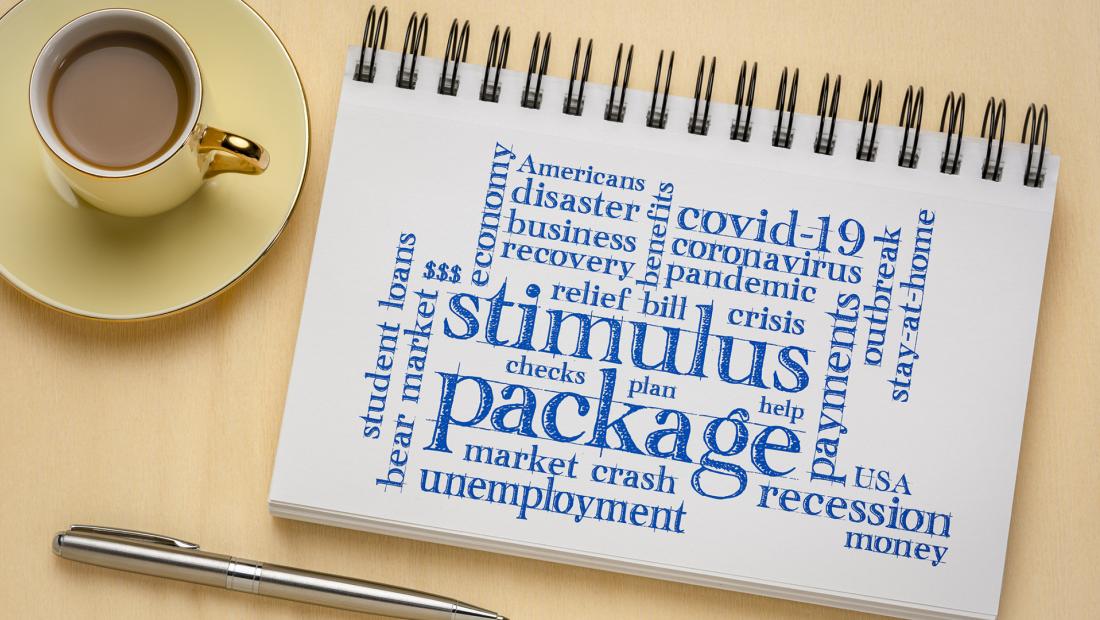
Chances are you've heard about the stimulus checks that certain people and households are receiving from the IRS in the coming weeks amid the coronavirus outbreak. (In fact, some people might have already received theirs.) You might be wondering if you're getting a stimulus check at all, how much stimulus money you're receiving and when you'll actually receive the money. (That's where the IRS' new "Get My Payment" tool comes in — more on that later.)
Well, you're not alone. So we asked Alexa von Tobel, personal financial guru and Managing Partner of Inspired Capital, to answer the most common questions about the stimulus checks.
How much stimulus money will I get?
Great question — it can be incredibly confusing to wade through the details here. Essentially, the stimulus check will be based off of your 2019 tax return, and the size of the check will vary based on your adjusted gross income (AGI) and tax filing status (e.g. single, married filing jointly, etc.). If you haven't filed your 2019 taxes yet, the government will use your 2018 tax return.
Here's how it breaks down:
- If you're a single adult with an AGI under $75,000, you're eligible for the full $1,200 check. The amount of your check decreases as your income goes up—before stopping at $99,000. In other words, if your AGI is over $99,000, you are not eligible for a check.
- If you're a married couple who filed jointly and whose AGI is less than $150,000, you’re eligible for the full $2,400 stimulus payment. This amount also decreases as your income goes up before stopping at $198,000. So if your joint AGI is over $198,000, you are not eligible for a check.
- The stimulus also includes an additional $500 for every qualifying child under the age of 17.
When will the stimulus checks be deposited?
This question depends on a few factors. For those who have direct deposit set up already, there will be two waves. The first wave of recipients should receive their payments by about April 14. The second wave by about April 20. For those not in those first two groups (ie. if you don't have direct deposit set up and are expecting a check in the mail instead), checks are expected to begin getting mailed out in the next few weeks. What group are you in?
- You should be part of that first group if you’ve given your bank account information to the IRS for tax refunds in 2018 or 2019 tax returns or if you receive benefits and filed federal tax returns that included direct deposit information.
- You should be part of that second group if you receive Social Security benefits via direct deposit but did not file a federal income tax form in 2018 or 2019.
- Don't have direct deposit set up? It might take a little longer, as checks are expected to begin getting mailed out over the next few weeks. Read on to see how you can track it.
All that said, this is a new program that has come together quickly, so there could be delays.
When will I get my stimulus check?
As this is such a challenging financial time for most households, this is a critical question. Checks should be hitting bank accounts over the next few weeks. But more specifically, the IRS has launched a "Get My Payment" tool, which can be found here. This tool should be able to help tell you when exactly your payment should be expected. In order to get your estimate, make sure to have your 2018 and 2019 tax information readily available to make it as seamless as possible.


